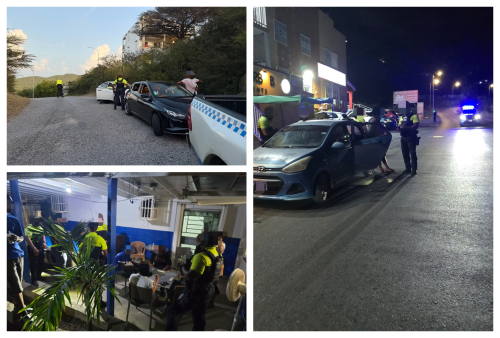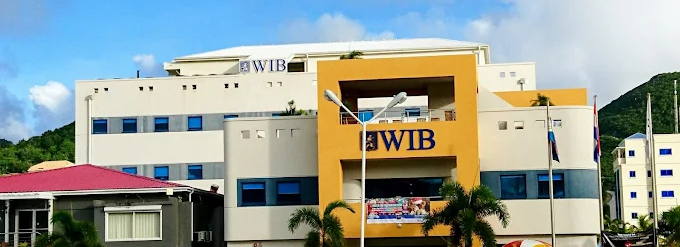 PHILIPSBURG:--- In a shocking revelation that has sent ripples through the Windward Islands, Sint Eustatius businessman S. T. finds himself at the center of a sprawling criminal investigation. The allegations against T paint a grim picture of greed, corruption, and a blatant disregard for the law, tarnishing the reputation of the small island community.
PHILIPSBURG:--- In a shocking revelation that has sent ripples through the Windward Islands, Sint Eustatius businessman S. T. finds himself at the center of a sprawling criminal investigation. The allegations against T paint a grim picture of greed, corruption, and a blatant disregard for the law, tarnishing the reputation of the small island community.
A Web of Crime: Car Theft and Fraud
T, the owner of ABM Car Rentals, is accused of orchestrating a sophisticated car theft ring operating out of St. Maarten. According to sources, T’s recruited a gang of criminals to steal vehicles on St. Maarten, which were then shipped to Sint Eustatius and rented out through his car rental company. This brazen operation not only undermines the trust of unsuspecting customers but also highlights the audacity of T’s alleged criminal enterprise.
The businessman was reportedly caught red-handed, driving a stolen vehicle on St. Maarten. Adding to the scandal, his passenger at the time of arrest was identified as S.B., a former girlfriend of T’s. While police remain tight-lipped about the ongoing investigation, the scale of the operation suggests a deeply entrenched criminal network.
A History of Deception
This is not T’s first brush with the law. He is also a key suspect in the Windward Island Bank fraud case, a scandal that has implicated several individuals, including an immigration officer. The case involves fraudulent activities that have shaken public confidence in the region’s financial institutions. T’s alleged involvement in both the car theft ring and the bank fraud case paints a damning portrait of a man who appears to have built his business empire on a foundation of deceit and criminality.
The Silence of Law Enforcement
While the police on St. Maarten have refused to comment on the case, citing the magnitude of the investigation, their silence speaks volumes. The lack of transparency raises questions about the extent of T’s influence and the potential involvement of other high-profile individuals. Is this a case of one man’s greed, or does it point to a larger, more insidious network of corruption?
A Betrayal of Trust
For the people of Sint Eustatius, the allegations against T are a betrayal of trust. As a businessman, he was expected to contribute to the community’s growth and prosperity. Instead, he stands accused of exploiting his position for personal gain, leaving a trail of victims in his wake. From unsuspecting car rental customers to the financial institutions defrauded in the bank scandal, T’s alleged actions have caused untold harm.
Demanding Accountability
The time has come for accountability. The authorities must ensure that justice is served, not only to restore public trust but also to send a clear message that no one is above the law. The people of Sint Eustatius and St. Maarten deserve better than to have their communities tarnished by the actions of a few unscrupulous individuals.
As the investigation unfolds, one can only hope that the full extent of T’s alleged crimes will be brought to light and that those responsible will face the consequences of their actions. For now, the shadow of corruption looms large over Sint Eustatius, a stark reminder of the damage greed and dishonesty have wrought.





 PHILIPSBURG:--- The Police Force of Sint Maarten (KPSM) is calling on residents, visitors, and the broader business community to cooperate fully with law enforcement as the island gears up for one of its most celebrated annual events — the St. Maarten Heineken Regatta, set to take place during the first week of March 2026.
PHILIPSBURG:--- The Police Force of Sint Maarten (KPSM) is calling on residents, visitors, and the broader business community to cooperate fully with law enforcement as the island gears up for one of its most celebrated annual events — the St. Maarten Heineken Regatta, set to take place during the first week of March 2026. PHILIPSBURG:--- The Police Force of Sint Maarten (KPSM) is sending a clear message: enforcement is active, visible, and ongoing. Over the past week, the Action Team conducted a series of targeted operations across multiple districts, combining traffic controls, preventative searches, and rapid response to an armed threat — reinforcing KPSM's commitment to keeping Sint Maarten's roads and communities safe.
PHILIPSBURG:--- The Police Force of Sint Maarten (KPSM) is sending a clear message: enforcement is active, visible, and ongoing. Over the past week, the Action Team conducted a series of targeted operations across multiple districts, combining traffic controls, preventative searches, and rapid response to an armed threat — reinforcing KPSM's commitment to keeping Sint Maarten's roads and communities safe. ARUBA:--- Member of Parliament Egbert J. Doran is continuing his efforts to explore structured, military-based training opportunities for Sint Maarten’s youth aged 18 and older, following recent talks with Aruba’s Minister of Justice, the Honorable Arthur Dowers.
ARUBA:--- Member of Parliament Egbert J. Doran is continuing his efforts to explore structured, military-based training opportunities for Sint Maarten’s youth aged 18 and older, following recent talks with Aruba’s Minister of Justice, the Honorable Arthur Dowers. PHILIPSBURG:--- The Windward Islands Bank (WIB) has come under intense scrutiny as a major fraud investigation unfolds, implicating one of its employees in a scheme that allegedly siphoned thousands of dollars from customer accounts. Despite the gravity of the situation, WIB has chosen to remain tight-lipped, offering no comment when approached by SMN News.
PHILIPSBURG:--- The Windward Islands Bank (WIB) has come under intense scrutiny as a major fraud investigation unfolds, implicating one of its employees in a scheme that allegedly siphoned thousands of dollars from customer accounts. Despite the gravity of the situation, WIB has chosen to remain tight-lipped, offering no comment when approached by SMN News.



